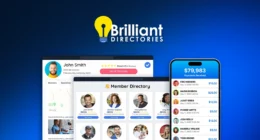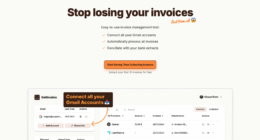Marketing attribution software helps businesses understand how different marketing channels drive sales and conversions. These tools track customer interactions across multiple touchpoints, from first contact to final purchase, using various attribution models like first-click, last-click, and data-driven analysis. The software integrates with existing systems to provide real-time insights, optimize marketing spend, and improve campaign performance. Solutions range from enterprise platforms to specialized tools for small businesses, each offering unique features to enhance marketing effectiveness. Exploring specific options reveals which solution best matches your business needs.
Quick Overview
- Marketing attribution software tracks and analyzes customer interactions across multiple marketing channels to measure campaign effectiveness and ROI.
- Popular solutions include C3 Metrics for enterprises, Triple Whale for e-commerce, and AnyTrack for small businesses.
- Essential features include real-time data capture, multi-touch attribution modeling, and seamless integration with existing marketing tools.
- The software helps optimize marketing budgets by identifying high-performing channels and enabling data-driven strategy adjustments.
- Attribution tools provide customizable dashboards and reports to visualize customer journeys and marketing performance metrics.
Understanding Marketing Attribution Fundamentals

Marketing attribution serves as the compass that guides businesses through the complex landscape of digital marketing effectiveness. It helps companies understand which marketing tactics drive conversions and deliver the best return on investment.
At its core, attribution tracking reveals how customers interact with various marketing touchpoints before making a purchase. This insight is vital for:
- Measuring campaign effectiveness
- Optimizing marketing strategies
- Improving budget allocation
- Understanding the customer journey
While attribution offers valuable insights, businesses face several challenges in collecting accurate data. Privacy regulations and tracking limitations across multiple devices can make it difficult to gather complete information. Attribution models help determine which marketing channels generate the highest ROI and assess the effectiveness of long-term strategies like SEO.
Despite these obstacles, proper attribution analysis remains essential for making data-driven decisions and maximizing marketing ROI through targeted campaigns and strategic resource allocation.
Top Attribution Models That Drive Results
Successful digital campaigns rely heavily on choosing the right attribution model to track and measure marketing performance.
Selecting the right attribution model is the foundation of measuring and optimizing digital marketing success.
Today's marketers can select from both single-touch and multi-touch attribution models, each offering distinct advantages for different business objectives.
According to research, 76% of brands now incorporate marketing attribution into their strategic planning.
- First-Click Attribution reveals which channels excel at attracting new prospects.
- Last-Click Attribution identifies the final touchpoints that drive conversions.
- Linear Attribution provides balanced insights across the entire customer journey.
- Data-Driven Attribution leverages machine learning for precise credit distribution.
Marketers must carefully evaluate their specific needs when selecting an attribution model.
Single-touch models work well for analyzing specific campaign elements, while multi-touch models offer thorough journey analysis.
Data-driven approaches provide the most sophisticated solution, using historical data to optimize attribution across all touchpoints automatically.
How Marketing Attribution Software Transforms Decision Making

Modern decision-making in businesses has been revolutionized by the adoption of marketing attribution software. Through enhanced ROI insights and real-time analytics, companies can now make data-driven decisions that directly impact their bottom line. Tools like Google Analytics Premium provide enterprise-level solutions for comprehensive performance tracking and analysis.
The software transforms decision-making processes in three key ways:
- It provides accurate performance metrics across all marketing channels, replacing guesswork with concrete data.
- It enables proactive strategy adjustments through real-time monitoring and predictive analytics.
- It offers extensive customer journey insights that inform personalized marketing approaches.
This technology helps stakeholders align on marketing objectives while optimizing budget allocation. Continuous analysis through granular insights allows marketing teams to better understand and respond to customer behavior patterns. By identifying underperforming channels and highlighting successful campaigns, teams can quickly reallocate resources to maximize returns.
The result is more efficient, targeted marketing efforts backed by solid data rather than intuition.
Essential Features for Effective Attribution Software
Building on the transformative power of data-driven decisions, organizations need specific features in their attribution software to maximize its effectiveness.
Modern attribution software must combine robust tracking capabilities with sophisticated analysis tools to deliver actionable insights.
Key features that make attribution software indispensable include:
- Real-time data capture across multiple channels, enabling immediate response to market changes
- Seamless integration with existing CRM systems and marketing automation tools
- Customizable attribution models that adapt to unique business requirements
- User-friendly interfaces backed by thorough training support
These essential components work together to create a complete attribution system.
The software should track customer interactions across devices, analyze complex datasets, and present findings through intuitive dashboards.
With these features in place, businesses can make informed decisions based on accurate, timely data.
Organizations can leverage attribution software to achieve optimal budget allocation across their marketing initiatives.
Overcoming Common Attribution Software Challenges

While attribution software offers powerful insights for marketers, organizations frequently encounter several key challenges that can limit its effectiveness. Common obstacles include rigid attribution models that lack flexibility, data integration issues across multiple marketing platforms, and the growing limitations of cookie-based tracking methods.
Organizations face additional hurdles with data quality, including poor UTM parameter tagging, incomplete CRM records, and the impact of dark traffic on attribution analysis. Most marketers express significant frustration with current attribution solutions due to their limitations. Modern marketing automation platforms like HubSpot and Marketo can help streamline data integration challenges.
The complexity of modern customer journeys, spanning multiple devices and touchpoints, further complicates accurate attribution tracking.
To overcome these challenges, companies should focus on implementing unified data platforms, utilizing machine learning capabilities, and ensuring proper communication between marketing and sales teams.
Regular performance analysis and model adaptability are also essential for maintaining effective attribution systems in today's dynamic digital landscape.
Best Attribution Software Tools and Platforms
The diverse landscape of attribution software tools offers solutions tailored to specific business needs, company sizes, and industry requirements.
Enterprise-level platforms like C3 Metrics and Neustar provide thorough multi-channel tracking, while smaller businesses benefit from user-friendly options like Northbeam and Triple Whale. The integration of Attribution Data Cloud technology enables comprehensive multi-channel insights for data-driven marketing decisions.
Attribution software adapts to business scale, from enterprise solutions like C3 Metrics to simpler tools perfect for growing companies.
- Enterprise powerhouses can leverage Nielsen VIQ's advanced capabilities to analyze complex marketing campaigns across multiple touchpoints.
- E-commerce businesses thrive with Triple Whale's streamlined analytics, making data-driven decisions simpler and more accurate.
- Small businesses find value in AnyTrack's affordable pricing and targeted advertising features.
- Industry-specific solutions like Hyros and Voluum cater to unique needs in print media and digital advertising.
Each platform integrates essential features like multi-touch attribution, real-time insights, and cross-channel tracking, ensuring businesses can effectively measure their marketing impact regardless of size or sector.
Frequently Asked Questions
How Much Does Marketing Attribution Software Typically Cost for Small Businesses?
Small businesses typically face varied pricing tiers for attribution software.
Basic plans start at $50-200 monthly, offering essential tracking features.
Mid-tier options range from $200-1,000 monthly, including advanced analytics.
Companies can save up to 20% through annual subscriptions.
Additional costs may include onboarding fees ($500-5,000), training, and per-user charges.
Free plans are available but offer limited functionality, while starter suites ($100-500 monthly) provide balanced features for growing businesses.
Can Marketing Attribution Software Track Offline Customer Interactions and Purchases?
Studies show that 67% of businesses now track both online and offline customer interactions.
Yes, marketing attribution software can effectively track offline interactions through various methods. These include call tracking numbers, QR codes on print materials, and point-of-sale systems that capture customer data.
Modern solutions like Google Offline Conversion Tracking and Facebook Conversion API help businesses connect in-store purchases and phone calls to their digital marketing efforts, creating an extensive view of the customer journey.
How Long Does It Take to See Reliable Results From Attribution Software?
Reliable results from attribution software typically emerge within 3-6 months, depending on several key factors.
Implementation and data cleanup usually take 4-6 weeks, while model configuration requires 2-4 weeks. Organizations need time to gather sufficient data across multiple customer touchpoints and validate tracking accuracy.
Companies with clean data and streamlined integration processes may see initial insights within 8-12 weeks, but meaningful patterns generally emerge after a full quarter of data collection.
What Technical Skills Are Required to Implement and Manage Attribution Software?
"Rome wasn't built in a day," and neither is attribution software expertise.
Essential technical skills include:
- Data analysis proficiency with SQL and Python/R
- Experience with API integrations and cloud platforms
- Dashboard creation using Tableau or Power BI
- Understanding of statistical methods and modeling
- Basic machine learning knowledge
Additionally, professionals should be comfortable with data visualization, system integration, and automated reporting.
Strong problem-solving abilities and attention to detail are vital for successful implementation and management.
Does Marketing Attribution Software Work Effectively With International, Multi-Language Campaigns?
Marketing attribution software effectively handles international, multi-language campaigns through specialized features designed for global marketing.
The software successfully processes data across different languages, complies with regional regulations, and provides customizable reporting for specific markets.
While challenges like data complexity and language barriers exist, built-in features such as multi-language support and localized analytics help marketers track and optimize campaigns across diverse geographic regions and linguistic communities.
Conclusion
Marketing attribution software has evolved from a nice-to-have tool into an essential component of data-driven marketing strategies. By connecting customer touchpoints, analyzing behavioral patterns, and providing actionable insights, these platforms enable businesses to optimize their marketing spend and improve ROI. While challenges around data integration and model selection persist, the continued advancement of attribution technology promises even more sophisticated solutions for measuring and maximizing marketing effectiveness.








